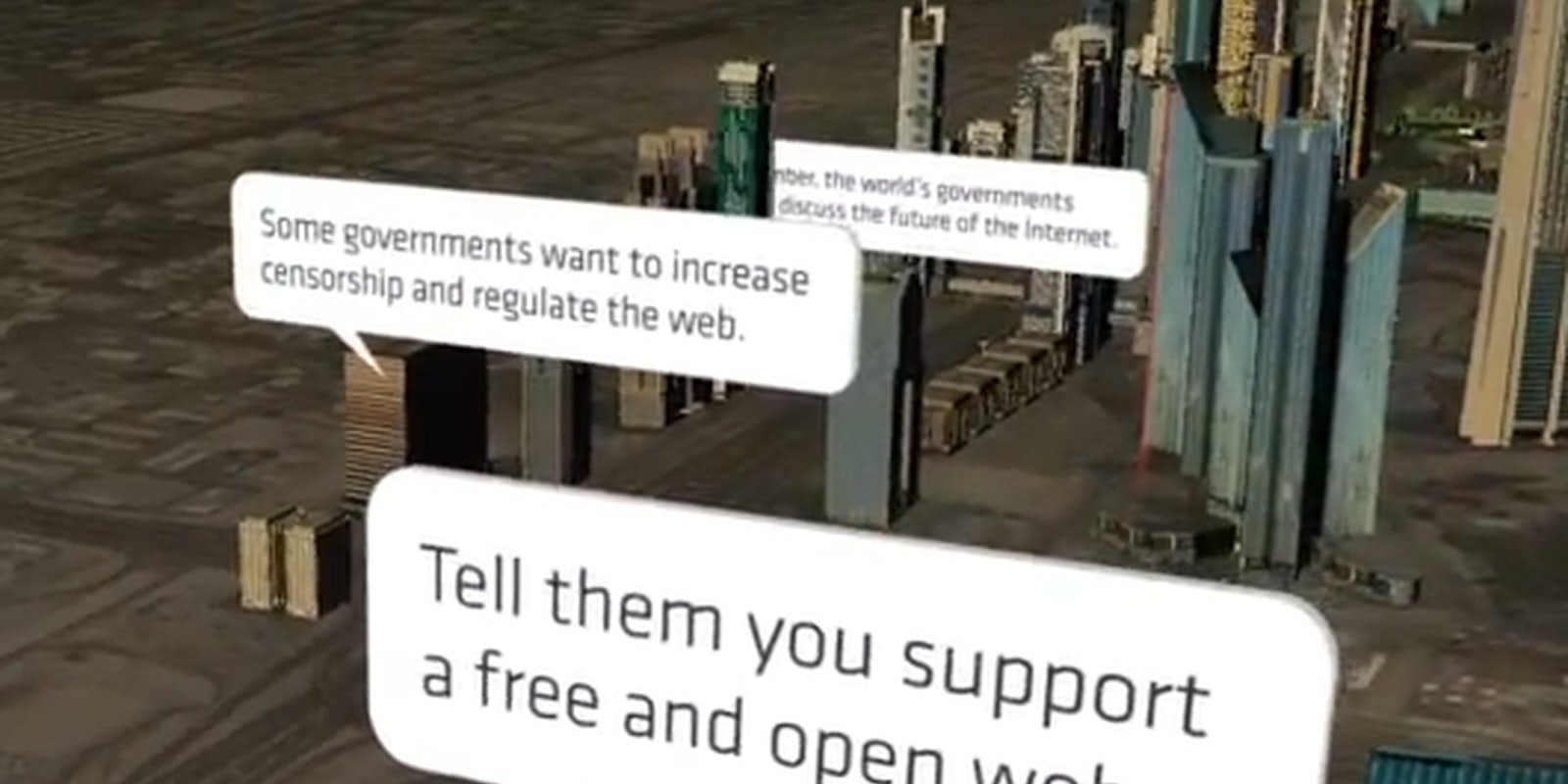Google supports an open Internet, and thinks you should too.
The tech giant is spearheading a petition condemning the upcoming World Conference on International Telecommunications (WCIT).
WCIT, which will be held in Dubai from Dec. 3-14 2012, is a conference put together by the International Telecommunications Union (ITU), a United Nations agency responsible for treaties pertaining to information and communication technologies. Earlier this June, ITU dismissed claims that it was planning on taking over the Internet.
But the upcoming WCIT has some people, including Google, worried. Only representatives from governments will be allowed to attend the conference and in turn shape or influence whatever new treaties arise from the meetings.
“The [ITU] is bringing together regulators from around the world to re-negotiate a decades-old communications treaty,” they write. “Some proposals could permit governments to censor legitimate speech— or even allow them to cut off Internet access.”
“Other proposals would require services like YouTube, Facebook, and Skype to pay new tolls in order to reach people across borders. This could limit access to information— particularly in emerging markets.”
Google is the parent company of video site YouTube.
According to a leaked document published by WCITLeaks, one of Russia’s main proposals for the conference is to grant countries power to regulate and control the Internet within their own borders:
“Member States shall have the sovereign right to establish and implement public policy, including international policy, on matters of Internet governance, and to regulate the national Internet segment, as well as the activities within their territory of operating agencies providing Internet access or carrying Internet traffic.”
This could give nations like Russia, India, and China carte blanche to regulate the Internet as they see fit. All three countries have histories of Internet censorship.
“A free and open world depends on a free and open Internet,” Google’s campaign site reads. “Governments alone, working behind closed doors, should not direct its future. The billions of people around the globe who use the Internet should have a voice.”
Google is asking its users to use said voices and sign a petition. The company also makes its case in 2-minute video, which you can see below.
Photo via Google/YouTube
